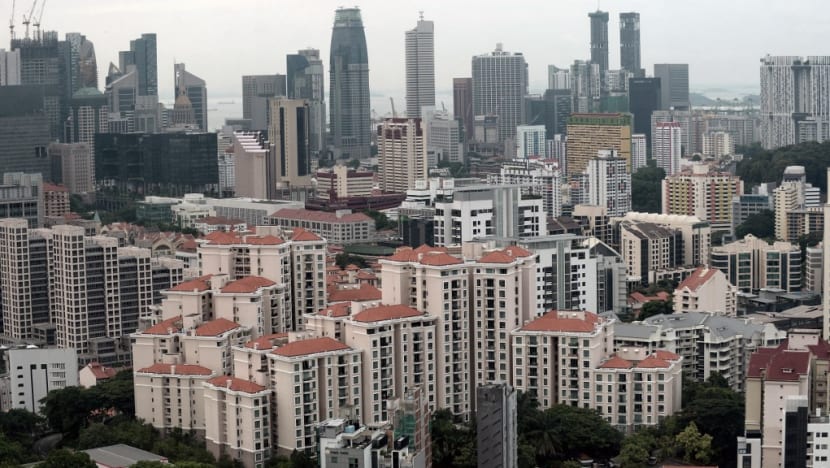Man fined S$1.14 million for involvement in providing illegal short stays at 31 properties

This general view shows a private residential complex and the financial district in Singapore. (File photo: AFP/Roslan Rahman)

This audio is generated by an AI tool.
SINGAPORE: A 41-year-old man who was the "key player" in an operation providing unauthorised short-term accommodation at 31 private residential properties was fined S$1.14 million on Monday (Sep 15), said the Urban Redevelopment Authority (URA).
Koh Guohui, Robin was one of six Singaporean men, aged between 33 and 81, who were found guilty for their involvement in the operation. He was sentenced on Monday, while the other five were sentenced between August 2024 and March 2025.
In total, Koh, as well as Lim En Xiang, Pandy, 33, Chew Lam Yong, 61, Low Ah Tee, 81, Chua Lian Beng, 71, and Chow Yan Kit, Ryan, 34, were fined S$1.27 million.
Between July 2019 and November 2021, Koh had engaged Lim, Chew, Low and Chua to join the operation providing illegal short-term stays in return for a monthly salary.
"Koh was the key player behind the operation and also the sole director of a company registered as SG Auto Car Pte Ltd, which he used to facilitate these illegal activities," said URA. The company was renamed to SG Bizloan Consultant in July 2021.
Lim, Chew, Low, Chua and Chow had also each served as the sole director of one of four companies - KCA, Edrich Group, Ed Werks Holdings and ANZ Management Services - at different times.
Koh instructed them to sign tenancy agreements in their capacity as company directors for the 31 private residential units, which he sourced.
He then subsequently advertised the units on online accommodation platforms such as Airbnb and HomeAway, subletting them for stays of less than three consecutive months - the minimum allowed stay duration - in return for rent payment.
The payments went to Koh, who used multiple bank accounts, as well as mobile phone numbers and host accounts registered under different aliases on the platforms to facilitate the operation.
URA said the offences came to light after the management council of a private residential development filed a report with the authorities regarding suspected short-term accommodation use at one of the units rented by Edrich Group.
It then ascertained the scale of the operation using feedback from residents and managing agents in other developments with private residential units rented by Edrich Group.
Under the Planning Act, the minimum stay duration for private residential properties is three consecutive months.
"This rule is intended to prevent frequent turnover of transient occupants, which can potentially change the residential character of a property and negatively impact neighbouring residents," said URA.
"We will take strict enforcement action against individuals and entities who are found to be involved in any way, be it by facilitating the transfer of revenue or sourcing for properties and occupants," said Martin Tan, director of URA’s development control group.
"This will include prosecution in court for severe cases where we will also press for deterrent sentences."
Members of the public can report suspected cases of illegal short-term accommodation in private residential properties to URA.

















